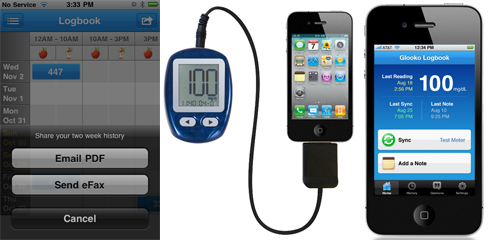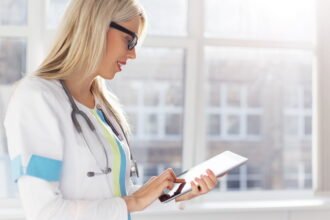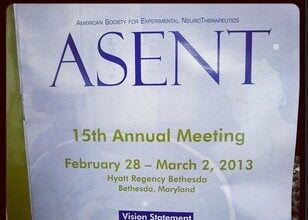This weekend, “diabetes” is a big buzzword in social media as the 73rd American Diabetes Association Scientific Session is taking place in Chicago. So far, there have been 3,500 tweets reporting on the congress. Of those tweets, a significant portion was generated by patient advocates who often refer to themselves as members of the “Diabetes Online Community” or DOC.
This weekend, “diabetes” is a big buzzword in social media as the 73rd American Diabetes Association Scientific Session is taking place in Chicago. So far, there have been 3,500 tweets reporting on the congress. Of those tweets, a significant portion was generated by patient advocates who often refer to themselves as members of the “Diabetes Online Community” or DOC. In the last few years, DOC has not only increased in size as more diabetes patients and caregivers look for disease management resources online but also gained significant power as pharmaceutical companies, advocacy groups and even policy makers seek consultation from leaders of the group.
The emergence of DOC have dramatically changed diabetes management–from patient-physician communication, disease management, advocacy activities to public health programs. Now, with a quick Google search, newly diagnosed patients can easily find online resources to connect with others, educate themselves about treatments, track disease progression and participate in regular physical or virtual advocacy events.

Popular diabetes bloggers have gained significant readership in the last few years. Their opinions can sometimes even have impact on policy making or product development.
As DOC continues to drive diabetes awareness through social media and collaborate with other stakeholders such as the pharmaceutical industry to innovate what contribution the patient community can make to address the diabetes pandemic, we should consider what we can do to accomplish that goal besides issuing tweets, having regular tweet chats, daily blogging or food logging on apps. Some experiments have shown us there are a lot of opportunities for DOC, public health community and the industry to bring the social media movement in diabetes to a new level.
Diabetes Surveillance:

Social media and digital technology have significantly changed diabetes management (Photo: http://diabetes.ufl.edu/my-diabetes/diabetes-resources/diabetes-apps/)
As the prevalence of diabetes continues to rise, detecting when and where new cases emerge will be extremely helpful for the public health community to revise strategies and tactics. Several studies have experimented to use online data to measure the outbreak of influenza or obesity trend. Data generated within DOC can also potentially be used for surveillance.
Crowdsourcing data for epidemiological analyses:
The richness of social media data–demographic information, user behavior, characteristics of technology platforms–offers many dimensions for us to analyze and interpret them. As we started to learn how we process the massive data set in a meaningful way, the possibilities are indefinite.

Crowdsourcing offers new opportunities for diabetes research by using user generated online data (Photo: Diabetesmine.com)
For epidemiologists, DOC data in the last few years may shed light on addressing some of the most impressing public health concerns with diabetes in this country–who the most vulnerable population are, what the most effective interventions might be and when and where those interventions should be conducted.
Outcome studies to demonstrate real efficacy of digital & social resources for diabetes patients
As diabetes patients increasingly rely on digital and social media resources to mange their conditions, we need scientific evidence to show these emerging tools do help to drive outcomes. Does participating in the DOC activities lead to better diabetes management? What kind of online activity has the most positive effects on diabetes patients? Can consistent use of mobile applications help to reduce A1C?
Answering these questions is essential for the public health community and the industry to use social media in a more meaningful and cost-effective fashion, which will ultimately benefit the patient community.
In the last few years, we have witness the rapid growth of the social media world–from Arab Spring, the voting of NBC’s Voice, presidential elections to the Oreo tweet at the Superbowl blackout, we are reminded how discussions online can have significant socioeconomic impacts offline.
From being obsessed with counting the number of tweets, Facebook likes or visits to a blog to rationalizing social media data and analyzing their impacts under a scientific or academic context, we realize generating buzz should not be the ultimate goal of social media. A lot more can be done to translate buzzwords into actionable insights.







